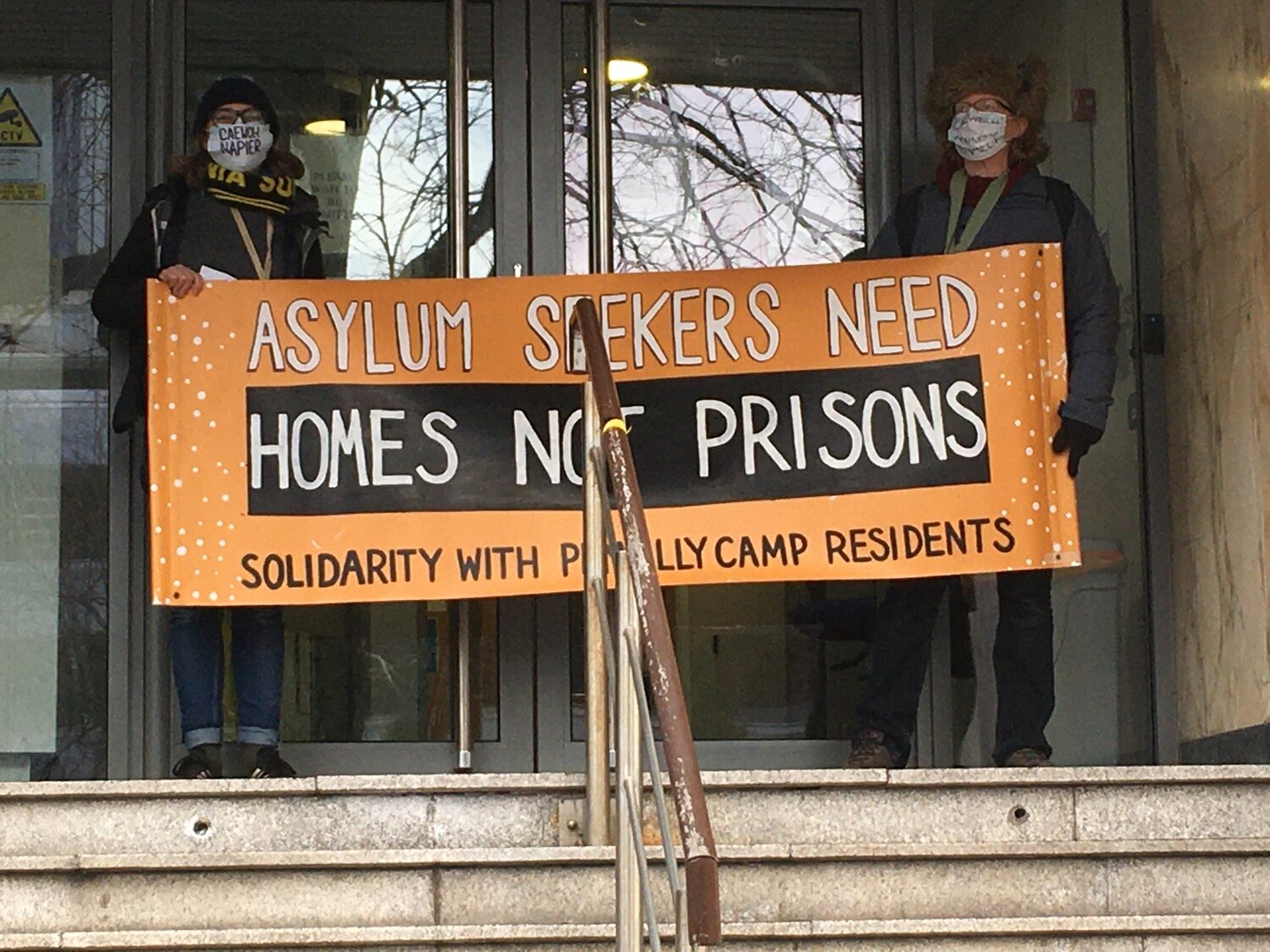
No Accident: the Damning Truth of Wales’ Child Poverty Crisis
Picture: Veronika Merkova
THE EXTENT OF CHILDREN GROWING UP POOR, AND THE PREVALENCE OF IN-WORK POVERTY, IS A PRODUCT OF CLASS SOCIETY IN BRITAIN AND A POLITICAL SYSTEM WHICH MAINTAINS IT.
Glyn Owen
New research has revealed that Wales now has the worst child poverty rate of all the UK nations, with 31% of children living below the poverty line.
The research, which has been carried out by Loughborough University for the UK End Child Poverty Coalition, found that in some parts of Wales, almost 4 in 10 children are growing up in poverty, once housing costs are taken into account.
Poor quality, low-income jobs have played a significant role, as stagnating family incomes and the increasing cost of living have pushed many families in Wales to the brink.
The sharp increase in children living in poverty in households with at least one working adult, which rose to 75% on the eve of the pandemic, shows Wales’ deterioration into a nation of the working poor.
Many parents, and particularly single mothers, are being trapped in a cycle of poverty, relying on low welfare payments whilst not being able to work due to high childcare costs.
The figures are a damning indictment of the Tory Government in Westminster, who have spent the past decade attacking low paid workers and the poorest through a mixture of austerity measures and pro-business reforms brought in to de-regulate the labour market and increase exploitation.
The poverty crisis is no accident; it has been deliberately created by a government which set out to make the poorest pay for the UK’s budget deficit following the bailout of major banks during the financial crisis of 2008.
Even during the past year, the level of class inequality has soared. Increasing child poverty can be contrasted with a record number of new billionaires in Britain, whose wealth grew by over 20% during the pandemic. Whilst their wealth skyrocketed, reliance on government welfare and food banks grew throughout 2020.
The Welsh Labour Government in Cardiff Bay are implicated in the findings as well. Just 6 years ago, they stated that their ambition was to eradicate child poverty altogether by 2020. In fact, the number of poor children has gone up in that time. Welsh Government has repeatedly refused to expand free school meals to all children living in poverty or use tax raising powers on the richest, has encouraged low-paid jobs to flourish and failed to challenge the Tories over austerity.
Rampant poverty across Wales
One of the regions highlighted in the report was Wales’ capital city, with areas in the south of Cardiff showing a particularly steep increase in the number of children in poverty over the past 5 years.
The data also exposes an inequality divide between the north and south of Cardiff, with opposing constituencies occupying both the highest and lowest places on constituency rankings.
In the south of the city, almost 4 in 10 children are living below the poverty line, compared to 2 in 10 in Cardiff North.
Increasing poverty is hitting rural and coastal areas particularly badly as they continue to see marked rises in the prevalence of child poverty, with Carmarthenshire, Pembrokeshire, and Ceredigion all seeing rates increase above the Welsh average.
One of the worst affected areas, according to the research, has been Wrexham, where the child poverty rate rose three times faster than the Welsh average, with over 1000 more children living in poverty in the county compared to 6 years ago.
In Blaenau Gwent 32.8% of children are now living in poverty, up 2% since 2015. Merthyr Tydfil, The Rhondda, Torfaen, Caerphilly and Neath Port Talbot all had child poverty rates above 30%.
Ellie Harwood, Wales Development Manager at Child Poverty Action Group, one of the groups supporting the research, said that the figures speak for themselves and that the situation for children couldn’t be starker.
“An unacceptable number of children continue to grow up in poverty in Wales, even though the majority have parents who are in work,” she said. “We can’t allow this situation to go on – poverty harms every aspect of a child’s development and has long-term consequences for our society as a whole.
‘While the main social security powers remain in Westminster, there are many things public bodies can do to reduce cost pressures on families in Wales. We need dedicated investment in all the services that help children to thrive, in order to reduce inequality across Wales.”
Sean O’Neill, Policy Director at Children in Wales said that if urgent action wasn’t taken now more children will be swept up into poverty in the months and years to come.
“Although the powers to tackle child poverty do not completely rest in Wales, this has to be the number one priority for the new Welsh Government,” he said.
One of the causes of child poverty is low welfare payments, such as Universal Credit, that plunge people into deeper poverty. These payments are controlled directly by the UK government.
During the pandemic, Universal Credit has gone up by just £20 per week, which still leaves people in a dire financial situation. But even this is due to end in October, meaning the poorest people in the country will face a huge cut in income. A central demand of The UK End Child Poverty Coalition, who carried out the research, is that the planned £20 p/w cut is scrapped.
Tories: looking to exploit the crises in the ‘levelling-up agenda.’
Coinciding with the publication of the research was the UK Government’s ‘Plan for Wales’ document outlining the strategy for ‘levelling-up’ Wales, which will be controlled directly by the UK Government and which contains no reference to immediately tackling child poverty. The money from the ‘levelling-up’ fund will go directly to councils, leading the Welsh Government to hit out at the Tories for by-passing The Senedd completely.
Behind the strategy is an attempt by Boris Johnson to consolidate power and attack devolution following the Tory’s disappointing performance in The Senedd elections.
Having brought in austerity, the Conservatives now recognise that cuts are unpopular and have failed to address deep-seated problems in the capitalist economy, so they are trying to take advantage of a feeble Labour opposition at Westminster and reinvent themselves for the next decade as a government that wants to address inequality.
A key part of their plan is the ‘levelling-up’ agenda, and through this strengthening the British state and undermining of the devolved governments. But the effects Tory control can be seen in the figures; the top 82 local authorities when it comes to child poverty are all in England, where the Tories have ultimate power over all aspects of the welfare state.
Even though the Tories have no mandate for overriding Welsh Government, and have themselves created the poverty crisis, they are looking to exploit Welsh Labour’s own poor record when it comes to poverty.
The research shows up Welsh Government’s own Child Poverty Strategy, published in 2015, which had as its central goal that “The Welsh Government has the ambition to make sure no child is living in poverty by 2020.” The figures show that far from eradicating child poverty, it has in fact gotten worse in Wales since 2015.
Honing in on the Welsh Government, the anti poverty coalition’s network in Wales is calling for a delivery plan with clear measurable milestones and ambitious targets to ensure that no child is disadvantaged because of family income.
They are also calling for the eligibility of free school meals to be extended to all children, including over the school holidays, where a parent or guardian is in receipt of Universal Credit or equivalent benefits.
Previously, Welsh Labour defeated two motions brought by Plaid Cymru that would have ensured all children in poverty received a free school meal.
A recent report commissioned by the Bevan Foundation and the Wales Anti-Poverty Coalition on expanding the provision of Free School Meals (FSM) in Wales showed that giving all children in poverty free school meals would cost just 0.6% of Welsh Government’s budget.
While the report focuses on the financial cost to Welsh Government, it also highlights a wide range of benefits achieved through the extension of FSM. It concludes that additional investment in Free School Meal provision by the Welsh Government would yield a significant return both to individual families and wider society.
Beth Winter, Labour MP for Cynon Valley and member of the Socialist Campaign Group said, has criticised Welsh Government over the issue: “We currently have the most restrictive access to Free School Meals in the UK and we need to consider all options to tackle the scourge of food insecurity for our children,” she said.
“Child poverty is rising across Wales and in my own constituency of Cynon Valley the ‘End Child Poverty’ campaign confirms today that 34% of children are living in poverty.”
“I repeat my call to this new Senedd and Welsh Government to support extending the provision of free school meals so that no child in Wales goes hungry. We should work towards a position where all children have a guaranteed hot meal every school day and that no child feels embarrassed or ashamed to accept a free school meal.”
But if child poverty is genuinely going to be tackled, we need to challenge class society itself.


‘Kill the Bill’ Protesters Are Fighting for Our Democratic Rights, I Applaud Them | Beth Winter MP